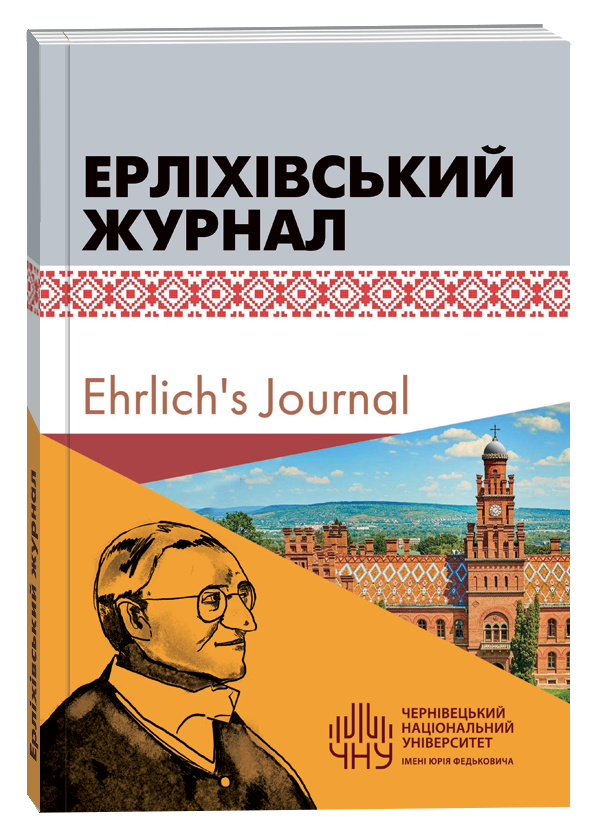THE ADMINISTRATIVE AND LEGAL STATUS OF CONSULTATIVE AND ADVISORY BODIES UNDER THE PRESIDENT OF UKRAINE IN MODERN CONDITION
DOI:
https://doi.org/10.32782/ehrlichsjournal-2022-6.08Keywords:
President of Ukraine, administrative and legal status, advisory bodies, Office of the President, International Advisory Board, National Council for the Recovery of Ukraine from the Consequences of War.Abstract
The Institute of the President is an integral component that organically complements the existing system of public authorities in Ukraine. The historical prerequisites that contributed to its formation in our state go back to the times of Kyivan Rus, Cossacks and the formation period of national identity at the end of the 19th and early 20th centuries. In the Soviet period, apart from the ruling Communist Party, which was utterly dominated by the Politburo, the position of General Secretary of the Central Committee of the CPSU was of decisive importance. During the development period of an independent state, the need to form a new system of authorities was one of the critical tasks facing the then-state leadership and lawyers. After all, the model that exists in the 21st century, with its strengths and weaknesses, functions with its inherent destiny of centralisation and influence on other branches of government. However, despite this, the war started by the Russian Federation with Ukraine demonstrated one crucial side of such a system: a strong President has the opportunity, based on his administrative and legal status, to gain access to the implementation of centralised management of a country that is in a state of war. Despite the current debates, which are taking place both among representatives of legal science and among the public, it is difficult to imagine the effective implementation of the Head of State’s powers without the activity of the relevant consultative and advisory bodies. The latter, having their own administrative and legal status, allow the President of Ukraine to exercise the relevant powers, the list of which is clearly defined in the Basic Law. In this way, a distinct possibility is traced for forming a separate subsystem of such bodies, which carry out their activities to ensure the effective implementation of its administrative and legal status. Compared to the possibility of forming such consultative and advisory bodies under public authorities, the head of state has the right to develop them not at the level of a separately defined by-law but at the level of the Constitution of Ukraine, which strengthens the importance of the activities of such bodies and emphasises the peculiarities of the legal status of the President of Ukraine. At the same time, to date, despite the scientific research on the peculiarities of the administrative-legal status of consultative and advisory bodies under public authorities, there is no single normative-legal act that would determine the specifics of the formation of such bodies, including the head of the Ukrainian state The need to implement the classification of such bodies, the procedure for their formation and functioning through the adoption of a separate legal act “On consultative and advisory bodies in Ukraine” is being pursued.
References
Конституція України : від 28.06.1996 р. № 254к/96-ВР : станом на 1 січ. 2020 р. URL: https:// zakon.rada.gov.ua/laws/show/254к/96-вр#Text
Бодрова І., Болдирєв С., Величко В. Державне будівництво і місцеве самоврядування в Україні : підручник / ред. С. Серьогіна. 2-ге вид. Харків : Право, 2011. 360 с.
Рекомендації Європейської Комісії щодо статусу України на членство в ЄС | EEAS. The Diplomatic Service of the European Union | EEAS. URL: https://www.eeas.europa.eu/delegations/ukraine/рекомендації-європейської-комісії-щодо-статусу-україни-на-членство-в-єс_uk?s=232
Про забезпечення участі громадськості у формуванні та реалізації державної політики : Постанова Каб. Міністрів України від 03.11.2010 р. № 996 : станом на 15 верес. 2022 р. URL: https://zakon.rada.gov.ua/laws/ show/996-2010-п#Text
Нестерович В. Ф. Поняття «консультативно-дорадчий орган» як категорія конституційного права. Філософські та методологічні проблеми права. 2017. № 1 (13). С. 138–145.
Про затвердження типових положень про молодіжні консультативно-дорадчі органи : Постанова Каб. Міністрів України від 18.12.2018 р. № 1198 : станом на 19 листоп. 2022 р. URL: https://zakon.rada.gov.ua/laws/ show/1198-2018-п#Text
Крайній П. І. Громадські ради в Україні: адміністративно-правове дослідження : монографія / П. І. Крайній. Одеса : Видавничий дім «Гельветика», 2022. 160 с.
Про Міжнародну дорадчу раду : Указ Президента України від 16.12.2015 р. № 706/2015 : станом на 13 трав. 2020 р. URL: https://zakon.rada.gov.ua/laws/show/706/2015#Text
Питання Національної ради з відновлення України від наслідків війни : Указ Президента України від 21.04.2022 р. № 266/2022 : станом на 17 трав. 2022 р. URL: https://zakon.rada.gov.ua/laws/show/266/2022#Text







